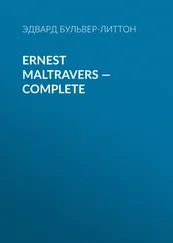Эдвард Бульвер-Литтон - Paul Clifford — Complete
Здесь есть возможность читать онлайн «Эдвард Бульвер-Литтон - Paul Clifford — Complete» — ознакомительный отрывок электронной книги совершенно бесплатно, а после прочтения отрывка купить полную версию. В некоторых случаях можно слушать аудио, скачать через торрент в формате fb2 и присутствует краткое содержание. Жанр: foreign_prose, literature_19, Европейская старинная литература, foreign_antique, на английском языке. Описание произведения, (предисловие) а так же отзывы посетителей доступны на портале библиотеки ЛибКат.
- Название:Paul Clifford — Complete
- Автор:
- Жанр:
- Год:неизвестен
- ISBN:нет данных
- Рейтинг книги:5 / 5. Голосов: 1
-
Избранное:Добавить в избранное
- Отзывы:
-
Ваша оценка:
- 100
- 1
- 2
- 3
- 4
- 5
Paul Clifford — Complete: краткое содержание, описание и аннотация
Предлагаем к чтению аннотацию, описание, краткое содержание или предисловие (зависит от того, что написал сам автор книги «Paul Clifford — Complete»). Если вы не нашли необходимую информацию о книге — напишите в комментариях, мы постараемся отыскать её.
Paul Clifford — Complete — читать онлайн ознакомительный отрывок
Ниже представлен текст книги, разбитый по страницам. Система сохранения места последней прочитанной страницы, позволяет с удобством читать онлайн бесплатно книгу «Paul Clifford — Complete», без необходимости каждый раз заново искать на чём Вы остановились. Поставьте закладку, и сможете в любой момент перейти на страницу, на которой закончили чтение.
Интервал:
Закладка:
“O Paul, thou hast brought thy pigs to a fine market!”
“‘T is a market proper for pigs, dear dame,” said Paul, who, though with a tear in his eye, did not refuse a joke as bitter as it was inelegant; “for, of all others, it is the spot where a man learns to take care of his bacon.”
“Hold your tongue!” cried the dame, angrily. “What business has you to gabble on so while you are in limbo?”
“Ah, dear dame,” said Paul, “we can’t help these rubs and stumbles on our road to preferment!”
“Road to the scragging-post!” cried the dame. “I tells you, child, you’ll live to be hanged in spite of all my care and ‘tention to you, though I hedicated you as a scholard, and always hoped as how you would grow up to be an honour to your—”
“King and country,” interrupted Paul. “We always say, honour to king and country, which means getting rich and paying taxes. ‘The more taxes a man pays, the greater honour he is to both,’ as Augustus says. Well, dear dame, all in good time.”
“What! you is merry, is you? Why does not you weep? Your heart is as hard as a brickbat. It looks quite unnatural and hyena-like to be so devil-me-careish!” So saying, the good dame’s tears gushed forth with the bitterness of a despairing Parisina.
“Nay, nay,” said Paul, who, though he suffered far more intensely, bore the suffering far more easily than his patroness, “we cannot mend the matter by crying. Suppose you see what can be done for me. I dare say you may manage to soften the justice’s sentence by a little ‘oil of palms;’ and if you can get me out before I am quite corrupted,—a day or two longer in this infernal place will do the business,—I promise you that I will not only live honestly myself, but with people who live in the same manner.”
“Buss me, Paul,” said the tender Mrs. Lobkins, “buss me—Oh! but I forgits the gate. I’ll see what can be done. And here, my lad, here’s summat for you in the mean while,—a drop o’ the cretur, to preach comfort to your poor stomach. Hush! smuggle it through, or they’ll see you.”
Here the dame endeavoured to push a stone bottle through the bars of the gate; but, alas! though the neck passed through, the body refused, and the dame was forced to retract the “cretur.” Upon this, the kind-hearted woman renewed her sobbings; and so absorbed was she in her grief that seemingly quite forgetting for what purpose she had brought the bottle, she applied it to her own mouth, and consoled herself with that elixir vitae which she had originally designed for Paul.
This somewhat restored her; and after a most affecting scene the dame reeled off with the vacillating steps natural to woe, promising, as she went, that if love or money could shorten Paul’s confinement, neither should be wanting. We are rather at a loss to conjecture the exact influence which the former of these arguments, urged by the lovely Margaret, might have had upon Justice Burnflat.
When the good dame had departed, Paul hastened to repick his oakum and rejoin his friend. He found the worthy Augustus privately selling little elegant luxuries, such as tobacco, gin, and rations of daintier viands than the prison allowed; for Augustus, having more money than the rest of his companions, managed, through the friendship of the turnkey, to purchase secretly, and to resell at about four hundred per cent, such comforts as the prisoners especially coveted.
[A very common practice at the Bridewell. The Governor at the Coldbath-Fields, apparently a very intelligent and active man, every way fitted for a most arduous undertaking, informed us, in the only conversation we have had the honour to hold with him, that he thought he had nearly or quite destroyed in his jurisdiction this illegal method of commerce.]
“A proof,” said Augustus, dryly, to Paul, “that by prudence and exertion even in those places where a man cannot turn himself he may manage to turn a penny.”
CHAPTER IX
“Relate at large, my godlike guest,” she said,
“The Grecian stratagems,—the town betrayed!”
Descending thence, they ‘scaped!
A great improvement had taken place in the character of Augustus Tomlinson since Paul had last encountered that illustrious man. Then Augustus had affected the man of pleasure, the learned lounger about town, the all-accomplished Pericles of the papers, gayly quoting Horace, gravely flanking a fly from the leader of Lord Dunshunner. Now a more serious yet not a less supercilious air had settled upon his features; the pretence of fashion had given way to the pretence of wisdom; and from the man of pleasure Augustus Tomlinson had grown to the philosopher. With this elevation alone, too, he was not content: he united the philosopher with the politician; and the ingenious rascal was pleased especially to pique himself upon being “a moderate Whig”!
“Paul,” he was wont to observe, “believe me, moderate Whiggism is a most excellent creed. It adapts itself to every possible change, to every conceivable variety of circumstance. It is the only politics for us who are the aristocrats of that free body who rebel against tyrannical laws; for, hang it, I am none of your democrats. Let there be dungeons and turnkeys for the low rascals who whip clothes from the hedge where they hang to dry, or steal down an area in quest of a silver spoon; but houses of correction are not made for men who have received an enlightened education,—who abhor your petty thefts as much as a justice of peace. can do,—who ought never to be termed dishonest in their dealings, but, if they are found out, ‘unlucky in their speculations’! A pretty thing, indeed, that there should be distinctions of rank among other members of the community, and none among us! Where’s your boasted British Constitution, I should like to know, where are your privileges of aristocracy, if I, who am a gentleman born, know Latin, and have lived in the best society, should be thrust into this abominable place with a dirty fellow who was born in a cellar, and could never earn more at a time than would purchase a sausage? No, no! none of your levelling principles for me! I am liberal, Paul, and love liberty; but, thank Heaven, I despise your democracies!”
Thus, half in earnest, half veiling a natural turn to sarcasm, would this moderate Whig run on for the hour together during those long nights, commencing at half-past four, in which he and Paul bore each other company.
One evening, when Tomlinson was so bitterly disposed to be prolix that Paul felt himself somewhat wearied by his eloquence, our hero, desirous of a change in the conversation, reminded Augustus of his promise to communicate his history; and the philosophical Whig, nothing loath to speak of himself, cleared his throat, and began.
“Never mind who was my father, nor what was my native place! My first ancestor was Tommy Linn (his heir became Tom Linn’s son),—you have heard the ballad made in his praise,
“‘Tommy Linn is a Scotchman born,
His head is bald and his beard is shorn;
He had a cap made of a hare skin,
An elder man is Tommy Limn!’
“There was a sort of prophecy respecting my ancestor’s descendants darkly insinuated in the concluding stanza of this ballad:—
“‘Tommy Linn, and his wife, and his wife’s mother,
They all fell into the fire together;
They that lay undermost got a hot skin,—
“We are not enough!” said Tommy Linn.’”
“You see the prophecy: it is applicable both to gentlemen rogues and to moderate Whigs; for both are undermost in the world, and both are perpetually bawling out, ‘We are not enough!’
Читать дальшеИнтервал:
Закладка:
Похожие книги на «Paul Clifford — Complete»
Представляем Вашему вниманию похожие книги на «Paul Clifford — Complete» списком для выбора. Мы отобрали схожую по названию и смыслу литературу в надежде предоставить читателям больше вариантов отыскать новые, интересные, ещё непрочитанные произведения.
Обсуждение, отзывы о книге «Paul Clifford — Complete» и просто собственные мнения читателей. Оставьте ваши комментарии, напишите, что Вы думаете о произведении, его смысле или главных героях. Укажите что конкретно понравилось, а что нет, и почему Вы так считаете.












